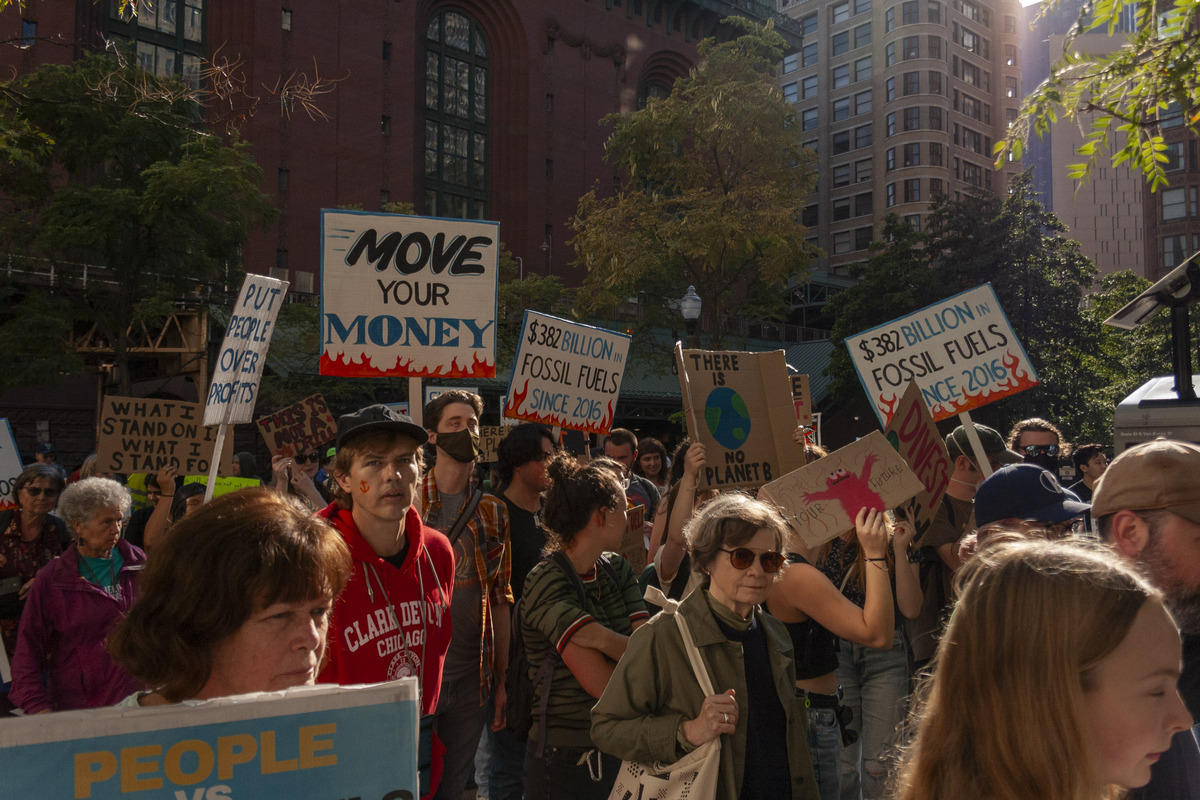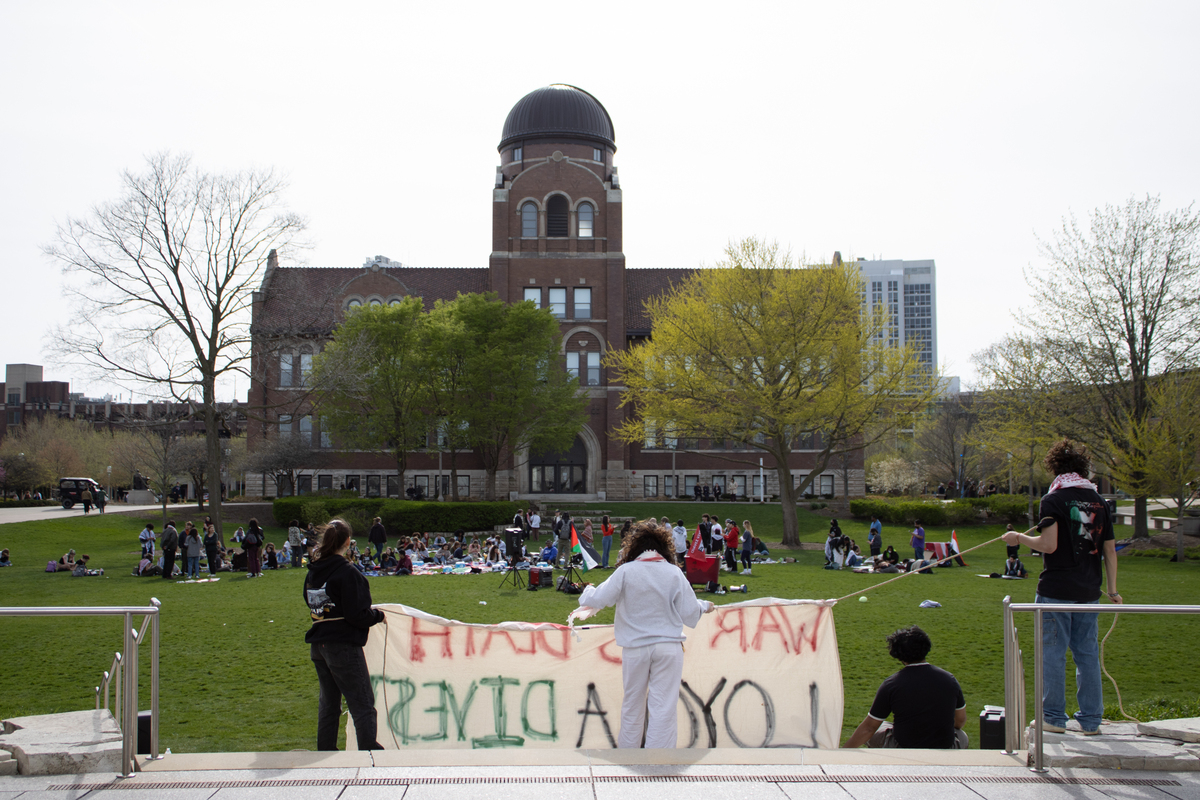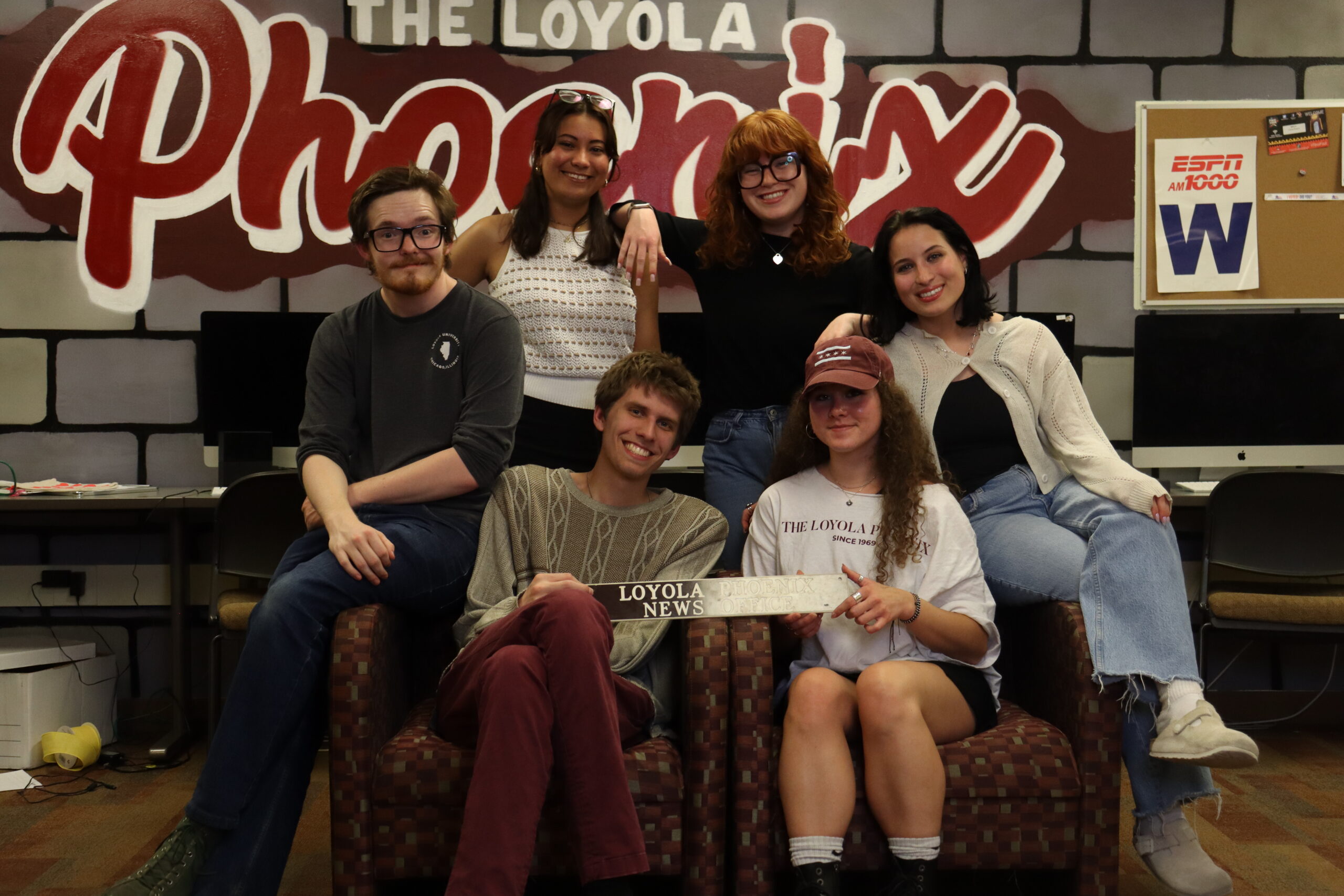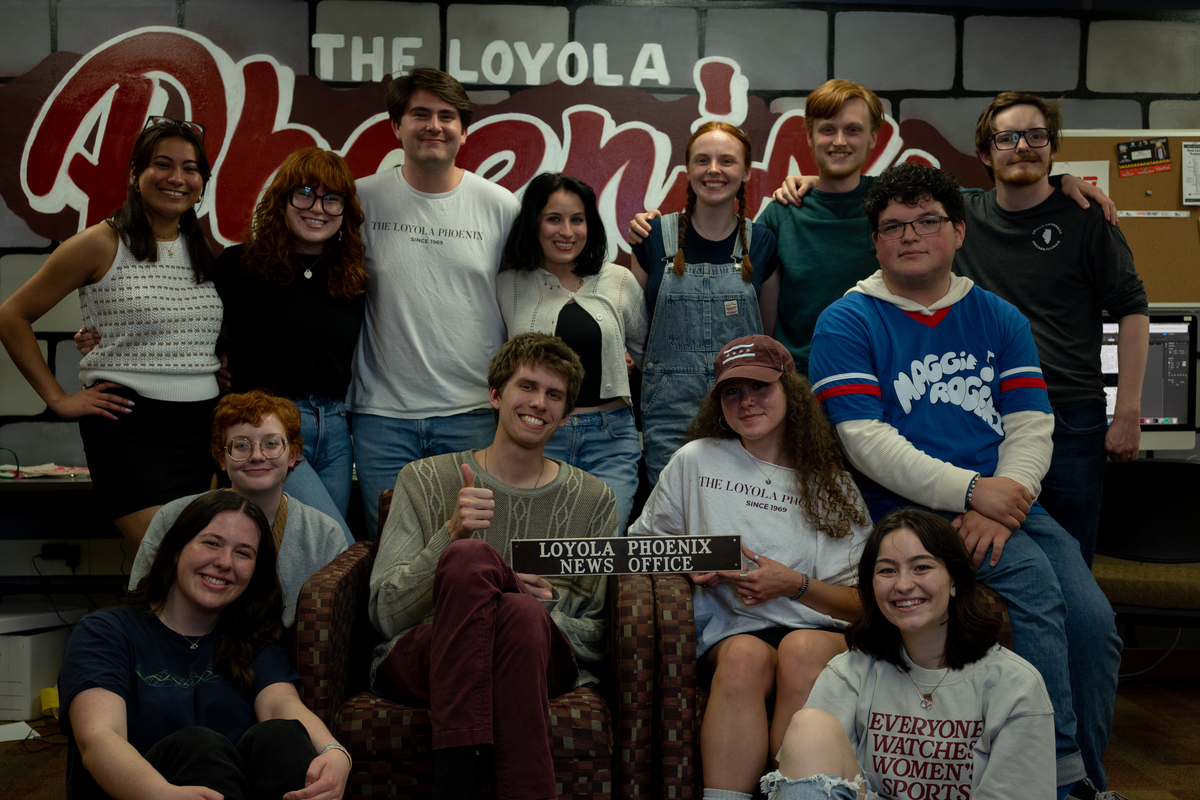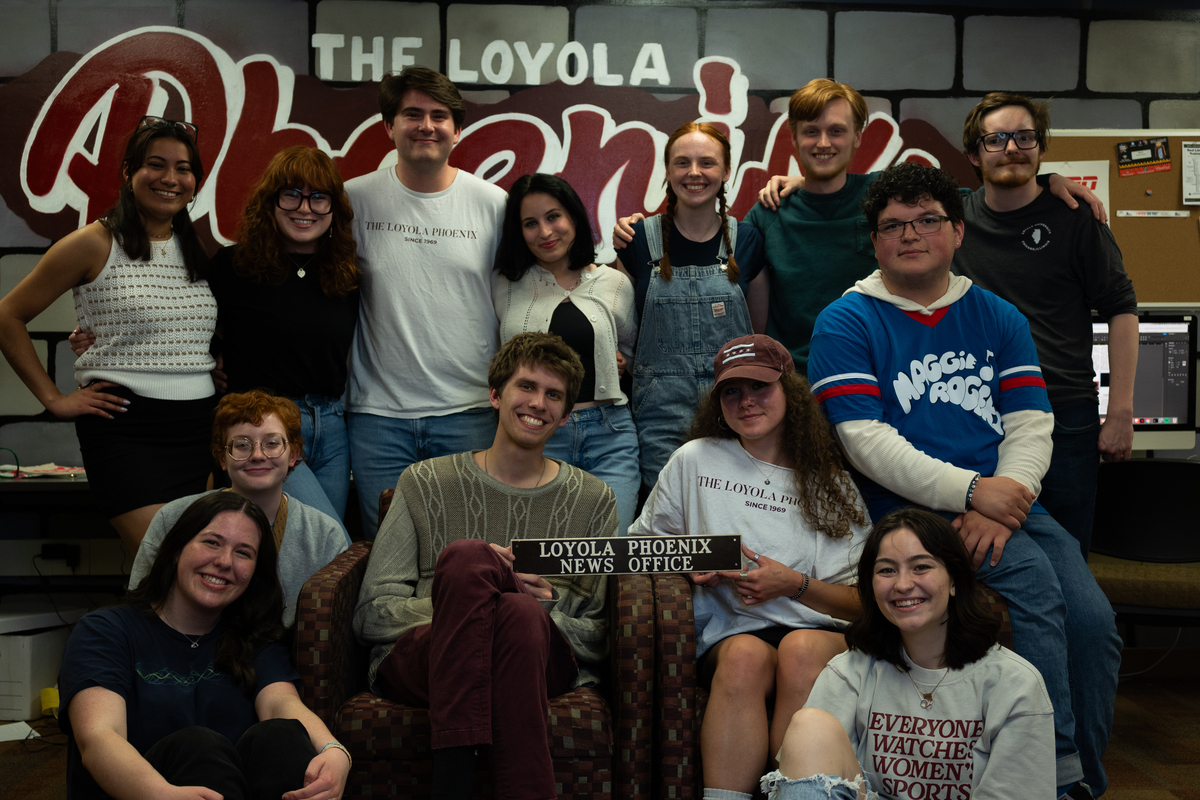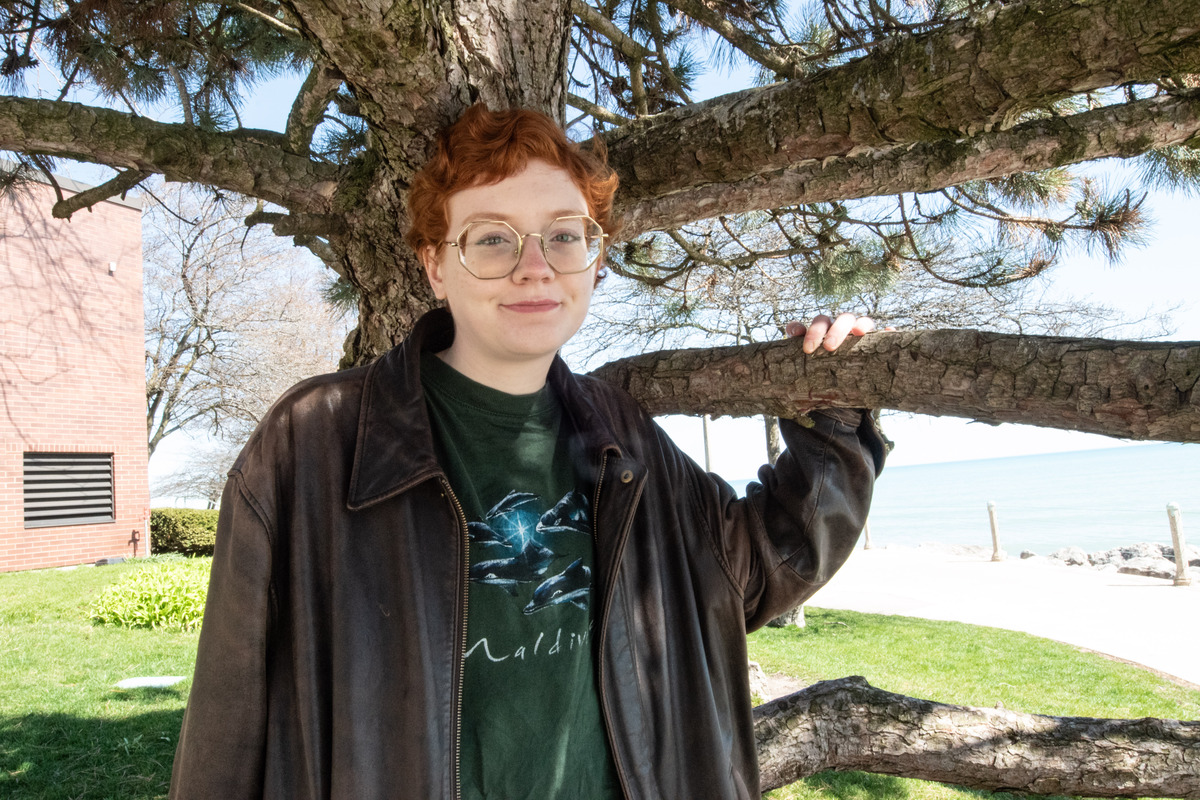Each week, a group of Loyola students volunteer at the St. Thomas of Canterbury Soup Kitchen and reflect upon social injustices while doing so.
Loyola Students Explore Social Injustices While Volunteering at a Local Soup Kitchen
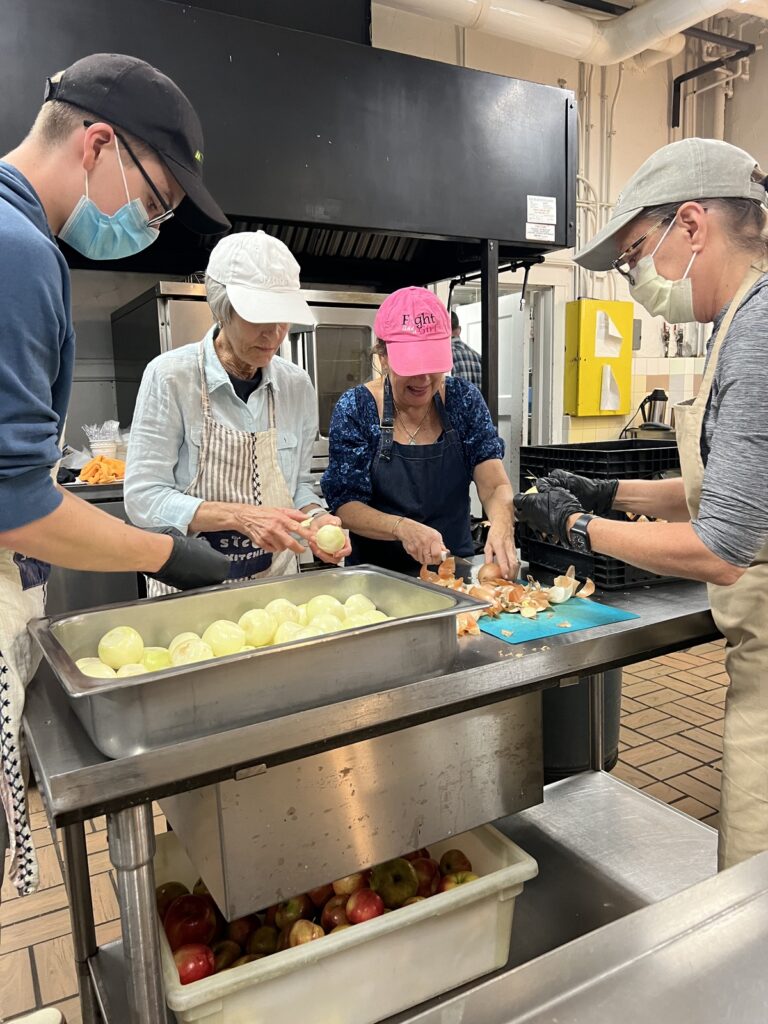
Every Friday, a group of Loyola students volunteer at the St. Thomas of Canterbury Soup Kitchen located at 4827 North Kenmore Avenue in Uptown, about a 20-minute train ride from Loyola’s Lake Shore Campus (LSC).
Volunteering consists of food prepping, active service and clean up, according to senior Jakub Krasewicz, a student leader of Loyola’s soup kitchen volunteers.
After prepping tables, cutting vegetables and preparing to-go meals, active service takes place from 5:30-6:30 p.m., when volunteers serve guests their beverages and meals. This is followed by cleaning the tables, chairs, cutlery, and sweeping and mopping, according to Krasewicz, a cognitive and behavioral neuroscience major.
Due to the request of the organizer, guests were not able to be interviewed.
Krasewicz said volunteering is low-commitment and Loyola students can participate on any Friday they choose. However, the more often students volunteer, the more connections they’re likely to make, according to junior Mia Silvestros, another student leader of Loyola’s soup kitchen volunteers.
“The guests at the soup kitchen are used to seeing Loyola students there, so they’ll ask us how basketball’s going, how our semesters are going, they’ll learn our names and we’ll learn theirs,” Silvestros said.
Krasewicz, who lives in the suburbs, said he drove to the soup kitchen every Friday during the pandemic, even though the group stopped going when the university shifted to online learning.
“It was such a big part of my time here at Loyola,” Krasewicz said. “No matter how busy of a week I had, I always went down and it ended my week on a bright note.”
The soup kitchen first opened 45 years ago, according to Jennifer Franco, volunteer coordinator of the soup kitchen. She said it was started by the parish, however running the kitchen was a collaborative effort with a group of Catholic workers from the Catholic Worker Movement.
Journalist, socialist, and progressive of her time, Dorothy Day, and French social activist, Peter Maurin, co-founded the Catholic Worker Movement in 1933, according to Franco.
At this time, 500-700 guests would arrive each Tuesday and Friday night and everything was done by hand. There were no dishwashers or paper utensils, and there was also no cut-off time, meaning volunteers were serving food for as long as guests were coming.
Now, there are approximately 75-90 guests per night, with the food coming from three primary sources, according to Franco.
Through a food rescue, items are collected throughout the city from places such as Care for Real, Costco and grocery stores. Donations are also received from wholesale produce in Blue Island, Illinois as well as the Greater Chicago Food Depository.
Care for Real and the Greater Chicago Food Depository did not respond to a request for comment.
Franco said the mission of the soup kitchen extends beyond helping those in need, but also aims to make volunteers better people. She said she noticed this especially during the pandemic, as people set aside their differences to support a common goal.
“What I’ve been moved by the most was watching people who disagree strongly on certain points come together and get along in order to serve a higher purpose,” Franco said. “It’s been inspiring to see that people are able to recognize the worth of the other person and put those differences aside and even see the good in each other.”
This mission is translated into Loyola’s volunteers, as they take time to reflect every Friday after volunteering, according to Silvestros. At the end of volunteering, Silvestros and Krasewicz will ask the group reflection questions, ranging from topics such as social justice and faith to personal relationships.
“It can’t only be volunteering if you’re working with an underserved population,” Silvestros said. “It’s almost necessary to think about how I can help these people beyond the three hours I spent here.”
Silvestros said students are constantly taught about social injustices in classrooms, but often there’s never any interaction between the students and those facing the injustices.
“You sit in a classroom and learn all day long about inequality and then you never meet the people who we’re talking about,” Silverstros said. “If you want to make a change and you want to help the community, you should start by meeting the people in the community.”
Students can learn more about volunteering at the soup kitchen on Loyola’s Community Service and Action website.
Featured image by Serena Thakkar | The Phoenix



